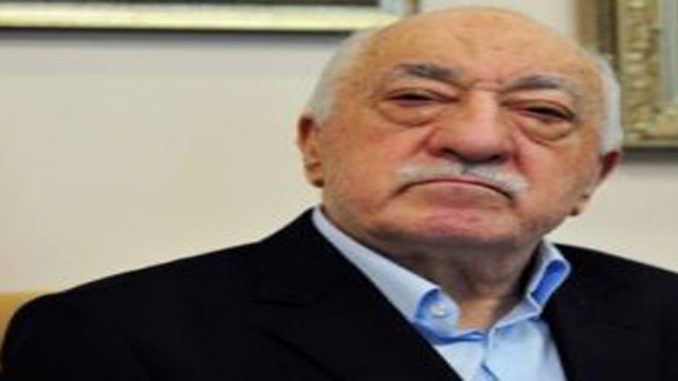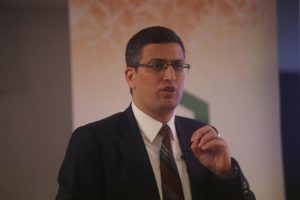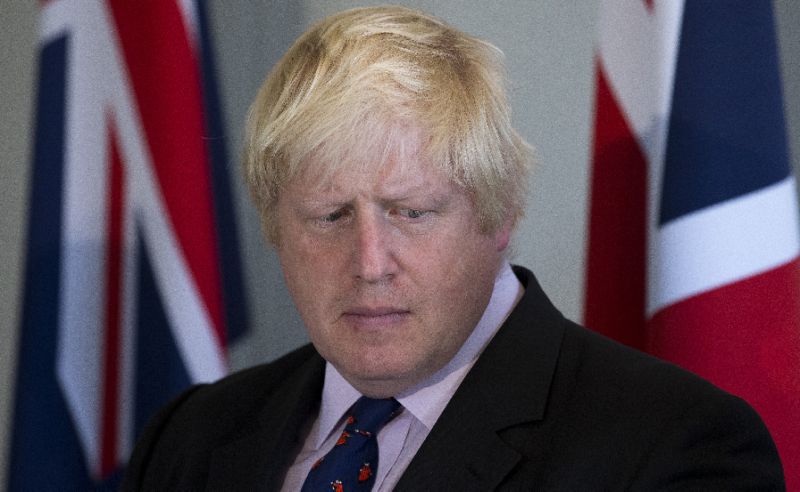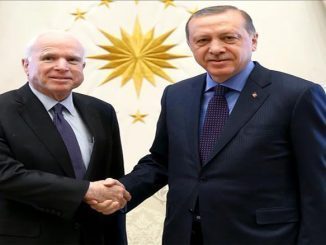
 Dr. Said Elhaj*
Dr. Said Elhaj*
The term “Parallel Entity” or “Parallel Organization” in Turkey refers to the dominant leadership of the “Service Movement” (in Turkish: Hizmet Hareketi), that was established by Fethullah Gulen. ‘Hizmet Hareketi’, also referred to as Fethullah Gulen Terrorist Organization (FETO) has for decades penetrated various state institutions and has recently been classified as a terrorist organization in Turkey at the backdrop of charges of several criminal acts, most notably the failed coup d’état in the summer of 2016.
After the 2016 failed coup attempt, the Turkish government launched a large-scale campaign against FETO to clear state institutions of its cadres, especially those directly associated with the failed coup attempt. The Turkish judiciary has ordered the arrest of tens of thousands of them on issues related to overthrowing the regime, membership of an armed terrorist organization as well as other charges. However, quite a few FETO leaders and members managed to escape outside Turkey or to hide inside, away from the eyes of authorities.
The most important evidence handed down by the judiciary against members of the terrorist organization was their use of a special, encrypted smartphone application, i.e. ‘ByLock’, which the authorities proved that FETO members used it for communication among themselves before and during the failed coup attempt. Bylock messaging application is similar to ordinary chat applications such as WhatsApp and others, but it is very special and makes tracking much more difficult. Anyone can join the Bylock conversations only through being added by previous users of the application. Also, Bylock users are not identified by name or phone number, but through an encrypted code supposed to be known by those who want to communicate with them.
Despite the wide-range combatting of FETO by the Turkish government since the failed coup attempt, it is remarkable that the West – US and European countries – is still betting on the parallel entity, as I have already written more than once.
This is due to many reasons, including:
– The United States’ procrastination over cooperation with Ankara on the issue of handing over or even investigating Fethullah Gulen, who lives in Pennsylvania.
– Some European countries granted asylum to a large number of FETO-linked officers who were involved in the failed coup attempt or at least accused of that.
The continuation of this bet suggests that the West still wants to exploit the card of the terrorist organization against Turkey. Recently, the parallel organization’s leadership has conveyed messages to its detained members asking them to maintain steadfastness, and promising them of an imminent solution for their problem. It is true that this may be understood in the context of a psychological war and an attempt to support and encourage their cadres to stay silent. However, it may also indicate that the organization still owns ‘power cards’, especially in light of the non-disclosure of its entire ‘organization pyramid’ due to its complicated and confidential structure. This is perhaps one of the most important reasons for the government’s persistence and lack of complacency regarding this issue despite the state of stability and offhand control. In this context, the government statements occasionally speak about relatively low percentages in the efforts of countering FETO so far (20-30%).
Given that the Bylock application has been the strongest evidence against the terrorist organization, as it helped to arrest the largest number of defendants – as a technical and confidential application – it has been logical to expect attempts by FETO to question the application’s credibility, and accordingly allowing a possibility to question all related cases, nullify them, and acquit its defendant members.
In this context, there are two significant developments that have recently occurred, namely:
First: The Public Prosecutor’s Office late in December, 2017, declared that some 11,480 mobile telephone numbers were directed to the ByLock servers through a free-to-download application called Mor Beyin, advising legal authorities to revise the legal status of the suspects being tried or convicted over their usage of the encrypted messaging system. “Legal authorities should revise the legal status of the users of the GSM numbers which were detected as being directed to the ByLock servers without their knowledge and will along with the evidences in their investigation files,” the statement read. “After detailed investigation, it was detected that 11,480 GSM numbers which have similar characteristics concerning their link and data parameters, were directed to the ByLock IP’s against their will,” the statement read. “It was discovered that these users were deliberately directed to the bylock.net domain, by the use of the applications developed by the organization members in order to make the detection of real ByLock users difficult and to complicate the struggle against FETÖ,” it said. Also, the Ankara Public Prosecutor’s Office has demanded the release of 1,000 Fethullahist Terrorist Organization (FETÖ) suspects detained for using Bylock, after they determined that around 11,000 telephone numbers were directed to the application’s server through an online application called Mor Beyin. “We will demand the release of some 1,000 imprisoned people in different cities who were detected as being directed to the ByLock through Mor Beyin, if there isn’t any other evidence against them,” Yüksel Kocaman, the Ankara Chief Public Prosecutor, said. Batches of the Bylock suspects have already been released, including Mustafa Yaman, a lawyer and member of the administrative board of Al-Sa’ada Party’s Istanbul branch.
Second: Surprisingly, Captain Burak Akin, who has been serving as the security chief of Land Forces Commander Gen. Yaşar Güler, recently surrendered to police headquarters in Ankara, reportedly testifying that Fethullahist Terrorist Organization (FETO) was “oppressing him and he could not stand the pressure.” The Turkish soldier who was honoured as one of the heroes in thwarting the July 2016 coup attempt has confessed that he was a member of FETO.
Akin had been declared a hero and awarded a medal for courageous actions in suppressing the coup attempt, as camera footage showed him being shot in his legs during the putsch.
It may be true that Captain Akin has surrendered to police on his own and for the reason he has mentioned. However, it is most likely in such an organization, which operates in complete secrecy and adopts blind obedience, that he surrendered upon orders from the parallel organization.
What does that mean?
The above-mentioned developments clearly point to a goal sought by FETO, namely the questioning of Bylock application as a strong evidence of the organization’s membership, and accordingly questioning the whole case. In this context, they may present their argument like this: On the one hand, there are thousands of people who have downloaded the application but they keep justifying their status, and on the other hand, there is a high ranking officer – who is a FETO member and actively participated in the failed coup – that remained outside the prison without being suspected or charged.
This interpretation may appear as an exaggeration in the context of the theory of conspiracy, but it is not so for those who know the way the parallel entity works, its full secrecy policy, its high discipline, and its centralization. However, it remains a possibility in any case.
At the very least, the government’s statements indicate that only a small percentage of FETO leaders and cadres have been referred to investigations or brought to courts, and that a large number of them are still free and even maintaining their jobs. These statements appear realistic and warn of the sensitivity of this issue in the current situation. It is also one of the main reasons behind the continuation of the state of emergency in the country up to now. The significant question here is: How if it came to questioning FETO’s existing evidence and cases?!
* Dr. Said Elhaj is a Palestinian doctor, writer, and researcher in the Turkish affairs. The article was published by the Egyptian Institute for Political and Scientific Studies (EIPSS).



